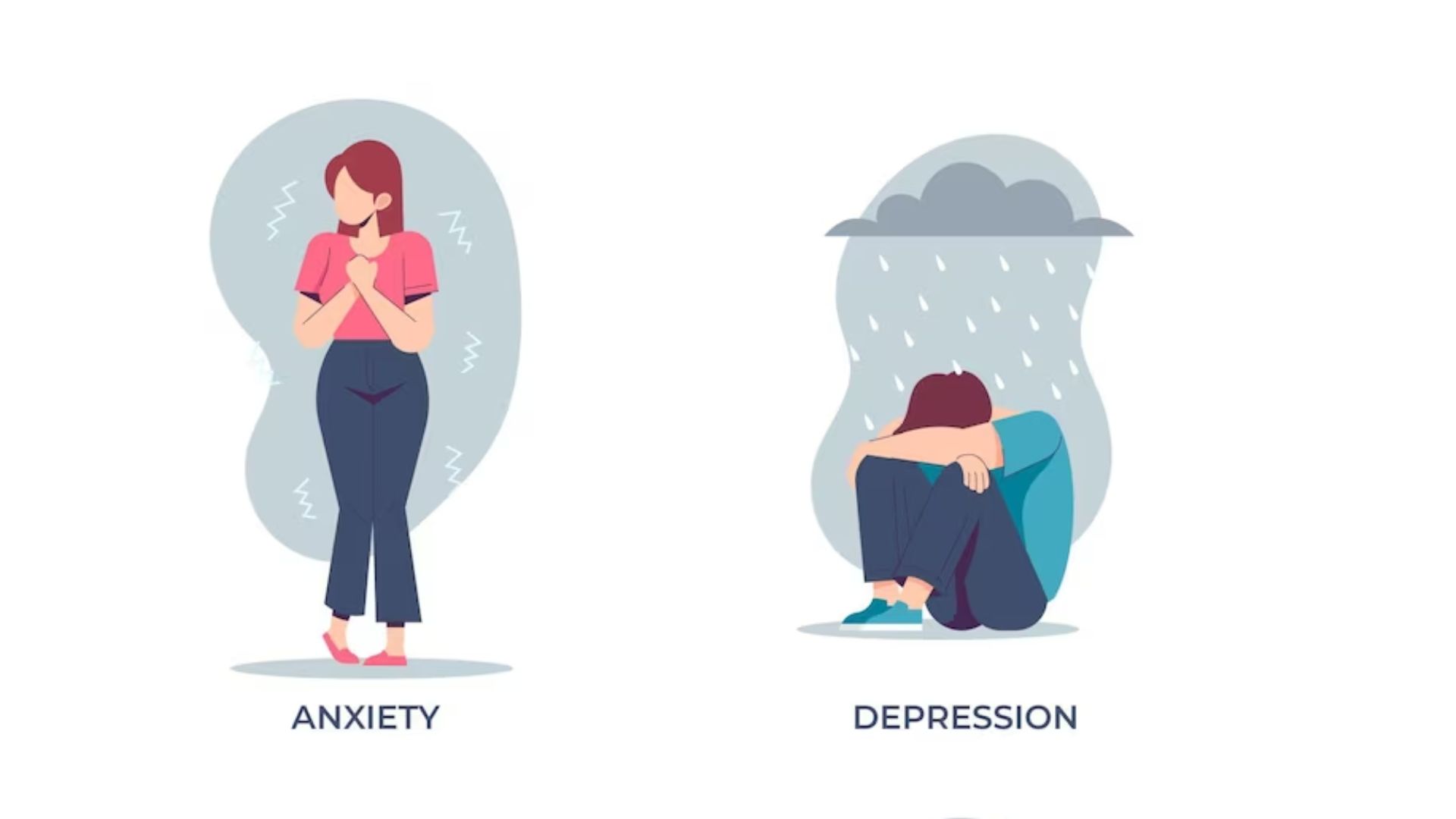Introduction
Depression and anxiety are prevalent mental health disorders that disproportionately affect women compared to men. According to the World Health Organization (WHO), these conditions are major contributors to the global burden of disease and significantly impact women’s quality of life. This blog explores why depression and anxiety are so common among women, supported by WHO data and relevant facts and figures, and delves into the mental and psychological issues that contribute to these conditions.
Prevalence of Depression and Anxiety in Women
The WHO provides comprehensive data on the prevalence of depression and anxiety:
- Depression: Women are nearly twice as likely as men to experience depression. According to WHO data, approximately 5.0% of the global population suffers from depression, but the prevalence is notably higher among women.
- Anxiety Disorders: Anxiety disorders also show a gender disparity, with women experiencing these conditions at higher rates than men. WHO estimates that anxiety disorders affect around 3.6% of the global population, with women being more susceptible.
Contributing Factors to High Rates in Women
- Hormonal Fluctuations:
- Menstrual Cycle and Pregnancy: Hormonal changes related to the menstrual cycle, pregnancy, and menopause can significantly impact mood and mental health. For instance, premenstrual dysphoric disorder (PMDD) and postpartum depression are linked to hormonal fluctuations.
- Evidence: Studies have shown that women with hormonal imbalances are at higher risk for developing mood disorders.
- Social and Economic Factors:
- Gender Inequality: Women often face societal pressures, gender-based discrimination, and economic inequalities that contribute to stress and mental health issues.
- Evidence: The WHO highlights that women are more likely to experience poverty and job insecurity, which can exacerbate mental health problems.
- Psychosocial Stressors:
- Multiple Roles: Women frequently juggle multiple roles, such as caregiver, professional, and homemaker, which can lead to increased stress and burnout.
- Evidence: Research indicates that women are more likely to experience stress from balancing work and family responsibilities, leading to higher rates of depression and anxiety.
- Trauma and Violence:
- Gender-Based Violence: Women are disproportionately affected by gender-based violence, including domestic abuse and sexual violence, which are significant risk factors for mental health disorders.
- Evidence: The WHO reports that intimate partner violence and sexual violence have severe psychological consequences, including depression and anxiety.
- Biological Vulnerability:
- Genetic Factors: Genetic predisposition can play a role in the development of depression and anxiety. Women may be more genetically vulnerable to these disorders.
- Evidence: Genetic studies suggest that women have a higher susceptibility to mood disorders, potentially influenced by genetic and hormonal interactions.

Psychological and Mental Health Issues in Women
- Self-Esteem and Body Image:
- Impact: Women often face societal pressures related to appearance and body image, which can contribute to low self-esteem and mental health issues.
- Evidence: Studies show a correlation between body dissatisfaction and higher rates of depression and anxiety in women.
- Coping Mechanisms:
- Social Support: Women may experience different coping mechanisms compared to men. While social support is generally beneficial, women might also face challenges in accessing adequate mental health resources.
- Evidence: Research indicates that women are more likely to seek help for mental health issues but may face barriers such as stigma or lack of access to appropriate care.
- Life Transitions:
- Major Life Changes: Events such as childbirth, menopause, and aging can impact mental health. Women often experience these transitions with varying degrees of psychological stress.
- Evidence: The WHO recognizes that life transitions can be significant stressors, influencing mental health and well-being.
Treatment and Support
- Psychotherapy:
- Cognitive Behavioral Therapy (CBT): Effective for treating both depression and anxiety by addressing negative thought patterns and behaviors.
- Evidence: WHO recommends CBT as a first-line treatment for depression and anxiety.
- Medication:
- Antidepressants and Anxiolytics: Medications can help manage symptoms and improve quality of life.
- Evidence: Pharmacological treatments are supported by the WHO for their efficacy in treating moderate to severe depression and anxiety.
- Lifestyle Changes:
- Exercise and Nutrition: Regular physical activity and a balanced diet can have positive effects on mental health.
- Evidence: WHO data supports the benefits of a healthy lifestyle in managing and preventing mental health disorders.
- Social Support:
- Support Networks: Building and maintaining supportive relationships can help mitigate the effects of depression and anxiety.
- Evidence: Social support is associated with better mental health outcomes, according to WHO research.
Conclusion
Depression and anxiety are prevalent among women due to a complex interplay of hormonal, social, psychological, and biological factors. Understanding these factors and addressing them through appropriate treatments and support can significantly improve mental health outcomes. By considering WHO data and evidence-based practices, we can work towards better mental health care for women and promote overall well-being.









